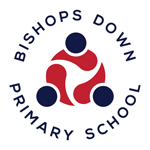Computing
‘In a world that’s increasingly run on technology, computer science is a liberal art that every student should be exposed to regardless of their path in life’ Hadi Partovi
(Hadi Partovi is a tech entrepreneur and investor, and CEO of the education nonprofit Code.org)
At Bishops Down Primary School we follow the National Curriculum 2014 for Computing. To support the teaching of the National curriculum objectives we follow the ‘Purple Mash’ scheme of work. This has clear objectives across KS1 and KS2 and the foundation stage. It also supports the delivery of the curriculum with various interactive programmes and activities. Alongside this we place a heavy emphasis on internet safety and follow the ‘UKCCIS Education for a connected world framework’. We also celebrate Safer Internet day each year in various ways.
In January 2020 the PSA very generously helped the school to buy a suite of laptops for use in class. This will support the teaching of the computing lessons as well as being used to enhance and support our creative curriculum. Technology is constantly used for research, design and recording.
We also run a Digital Leaders group who are voted into office by their classmates each Safer Internet Day. The role of the Digital Leaders is to act as role models to their peers, learn about online safety and cascade their knowledge to others through peer support and assemblies. The Digital Leaders meet once a week and discuss current issues, pertinent to the school and local area. They have been involved in writing to Sony and Microsoft to re-design game controllers to incorporate a safety feature as well as designing questionnaires to find out about current issues.
In the Early Years children are encouraged to:
-
Recognise that a range of technology is used in places such as homes and schools.
- They are able to select and use technology for particular purposes.
At Key stage 1 pupils are taught to:
-
understand what algorithms are, how they are implemented as programs on digital devices, and that programs execute by following precise and unambiguous instructions
-
create and debug simple programs
-
use logical reasoning to predict the behaviour of simple programs
-
use technology purposefully to create, organise, store, manipulate and retrieve digital content
-
recognise common uses of information technology beyond school
- use technology safely and respectfully, keeping personal information private; identify where to go for help and support when they have concerns about content or contact on the internet or other online technologies
At Key stage 2 pupils are taught to:
-
design, write and debug programs that accomplish specific goals, including controlling or simulating physical systems; solve problems by decomposing them into smaller parts
-
use sequence, selection, and repetition in programs; work with variables and various forms of input and output
-
use logical reasoning to explain how some simple algorithms work and to detect and correct errors in algorithms and programs
-
understand computer networks, including the internet; how they can provide multiple services, such as the World Wide Web, and the opportunities they offer for communication and collaboration
-
use search technologies effectively, appreciate how results are selected and ranked, and be discerning in evaluating digital content
-
select, use and combine a variety of software (including internet services) on a range of digital devices to design and create a range of programs, systems and content that accomplish given goals, including collecting, analysing, evaluating and presenting data and information
-
use technology safely, respectfully and responsibly; recognise acceptable/unacceptable behaviour; identify a range of ways to report concerns about content and contact
Progression of Skills - Click Here
